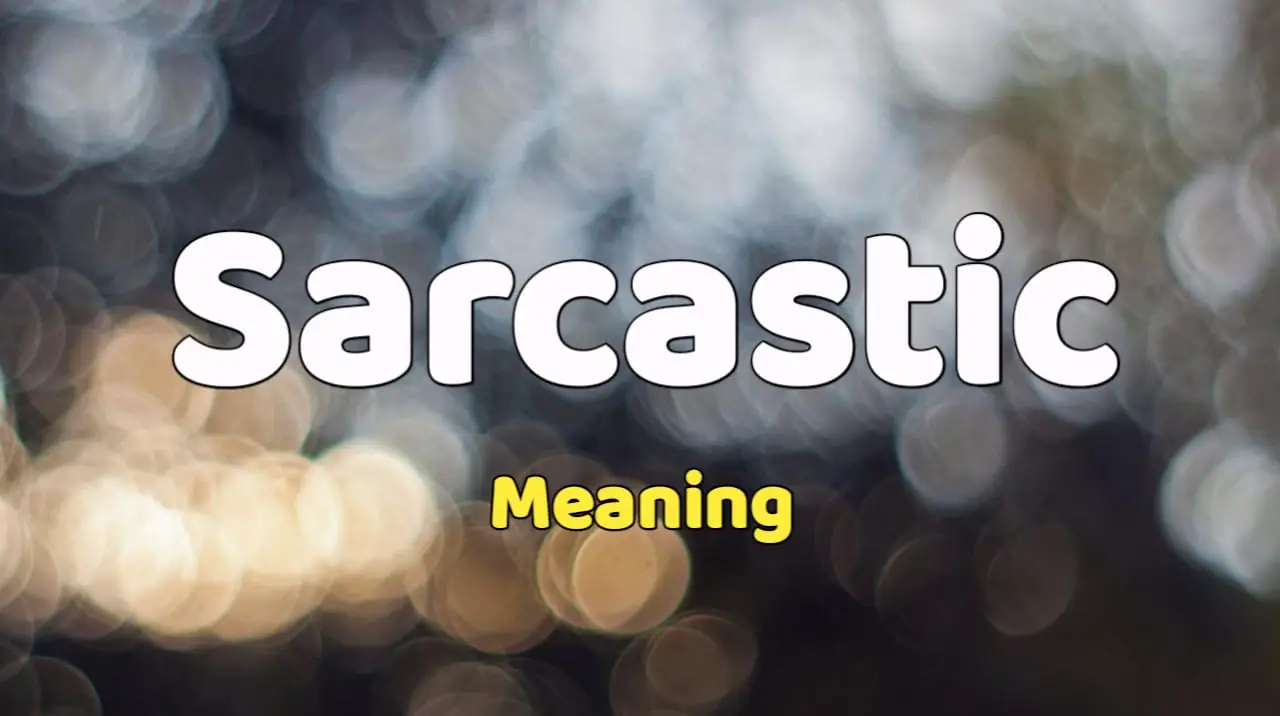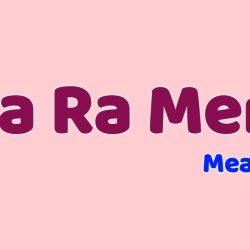Welcome to the world of wit and irony! In this blog post, we’ll unravel the intricate layers of “Sarcastic Meaning” – a linguistic phenomenon that adds spice to our conversations and often leaves us pondering the true intent behind the words. So, fasten your seatbelts as we embark on a journey through the realms of sarcasm.

What is Sarcastic Meaning?
Sarcasm, a form of verbal irony, introduces an element of mockery or scorn into communication. It’s the art of saying one thing but meaning the opposite, often with a humorous or satirical undertone. The purpose? To create a moment of amusement, sometimes at the expense of the unsuspecting listener.
The Power of Tone and Delivery
One key element of sarcasm lies in its delivery. A phrase can shift from ordinary to sarcastic based on the tone and emphasis placed on certain words. Imagine saying, “Nice job,” with a genuine smile versus a raised eyebrow – the entire meaning changes. The power of sarcasm often hinges on the speaker’s ability to manipulate tone effectively.
Navigating the Thin Line
Sarcasm is a double-edged sword. While it can be a delightful way to infuse humor into conversations, it can also lead to misunderstandings. The thin line between playful banter and hurtful comments requires a keen awareness of the social context and the relationship between the speakers. Navigating this line is an art in itself.
Recognizing Sarcastic Cues
How do you know when someone is being sarcastic? It’s more than just the spoken words – facial expressions, body language, and context all play a role. Recognizing these cues is essential for grasping the true meaning behind sarcastic remarks. A wink, a smirk, or a subtle eye roll can be the giveaways that separate sarcasm from sincerity.
Related : Bogey Meaning
Sarcastic Meaning in Pop Culture
From sitcoms to stand-up comedy, sarcasm is a recurring theme in pop culture. Characters like Chandler Bing from “Friends” or the witty banter in “The Office” showcase how sarcasm has become an integral part of entertainment. Exploring these instances not only provides a good laugh but also deepens our understanding of the diverse ways sarcasm manifests.
The Evolution of Sarcastic Language
Sarcasm isn’t static; it evolves with time. New phrases, expressions, and even emojis contribute to the ever-changing landscape of sarcastic language. Embracing these changes is crucial for staying attuned to the current linguistic trends and understanding the dynamic nature of communication.
The Pitfalls of Overusing Sarcasm
While sarcasm adds flavor to our daily exchanges, overusing it can lead to a lack of sincerity and connection. Constant sarcasm may create an environment where genuine feelings are masked, hindering authentic communication. It’s essential to strike a balance between humor and sincerity.
Conclusion
“Sarcastic Meaning” is a fascinating aspect of human communication, injecting humor and irony into our daily interactions. Understanding the nuances of sarcasm enhances our ability to navigate social situations with wit and charm. So, the next time someone throws a sarcastic remark your way, embrace the irony, and perhaps, respond in kind. After all, in the world of language, a well-timed sarcastic quip is worth a thousand words.






